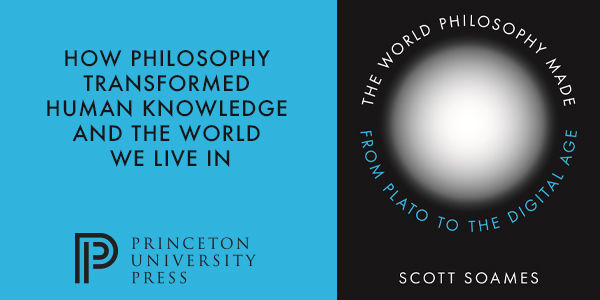Philosophers as Discoverers of the Unknown (Questions for World Philosophy Day)
“I didn’t even know that was a question I could ask.”
That remark from a student in an introductory philosophy course of mine points to the primary body of knowledge philosophy produces: a detailed record of what we do not know.
When we come to view a philosophical question as well-formed and worthwhile, it is a way of providing as specific a description as we can of something we do not know.
The creation or discovery of such questions is like noting a landmark in a territory we’re exploring.
When we identify reasonable, if conflicting, answers to this question, we are noting routes to and away from that landmark. And since proposed answers to philosophical questions often contain implied answers to other philosophical questions, those routes connect different landmarks.
The result is a kind of map: a map of the unknown.
Sometimes philosophers create or discover new questions and sets of possible answers to them, and the map grows. Sometimes we are able to answer questions on the map, or determine a method by which a definitive answer to a version of a question could be acquired (in the way that certain versions of philosophical questions have over time become questions for scientists), and the map loses some territory. The map of the unknown, like the world’s other maps, changes over time.
Today is World Philosophy Day. In celebration of it, let me ask my fellow philosophers to share a bit of this map with the world by telling us a philosophical question you like to think about, or teach, or are working on, or consider to be important.
(As we know, once we begin asking philosophical questions it is hard to stop, but I ask commenters to limit themselves to just one question, and if you really need to, one closely related follow-up.)
Happy World Philosophy Day, everyone!
Related: “The Intellectual Achievement of Creating Questions“, “Teaching Philosophy as the Search for Complication“, “Intuitive Bedrock and the Philosophical Enterprise“, “Whether Philosophical Questions Can Be Answered”




How is disagreement good for us?
What makes scientific medicine today fundamentally the same as 100 years ago? What makes it fundamentally different?
Question asked by 6 year old child in my class.
Why do we need robots in our world?
What is the appropriate role, if any, of disrespect in politics?
Can we ever come to understand “what is” through the limiting symbolic medium of language ?
How do we know that the thing we chose to do is the right thing to do?
What counts as an adequate test of whether perception is veridical?
What exactly is causation?
What’s the most important moral issue facing us today? How can we do the most good (with whatever level of material and motivational resources we’re willing to expend on this goal)?
How do things, in the most general sense of things, hang together, in the most general sense of hang together?
(thanks to Wilfrid Sellars for that one)
Why is suffering bad, and is it, really?
What is it about philosophizing that is valuable, and how, if at all, does the practice of publishing journal articles contribute to that value, and how, if at all, does the practice of teaching philosophy contribute to that value?
Does believing that death is annihilation help make you happier?
How does mathematical understanding work, and in particular, understanding of infinite structures?
Nice. I’m hoping I can, without detracting too much from the original purpose of the post, use this opportunity to ask if you could point me to some literature that might be useful for a question I have.
When I construct an equilateral triangle using compass and straightedge, in imagination or on paper, and I am suitably reasonable, I see — to formulate it one way — that the triangle is necessarily equilateral. When I draw an equilateral triangle by measuring it out using a marked ruler, in imagination or on paper, and I am suitably reasonable, I sees that, no matter how careful I was, the represented triangle is not necessarily equilateral. In the first case, the necessity is manifest to me; in the second case, the absence of necessity is manifest to me.
What’s going on here? What is it about the first technique that is missing from the second technique and that makes the necessity clear to me, or that makes it clear to me that the triangle must be equilateral?
Do you know of papers or books that address this question, or some question nearby?
Why is there something rather than nothing?
In class yesterday (discussing the Dembroff and Wodak paper on gendered pronouns) a student raised the question of what we’re doing when we choose to use animate pronouns (he/she/they) rather than inanimate pronouns (it) for dogs, other pets, and other animals. Are we trying to respect the animals, even though the animals have given no indication of wanting this sort of respect?
nice question. i would like to give my view. the question on gendered pronoun is our creation, our language. if we want to express our respect to animals like dogs, it is good enough to care and nurture them as they are (part of creation). somehow there are people who tend to “use” animals to augment something missing in their life which at times put animals at the disadvantage. there are many literatures to attest this observation, i.e., the elephants in Thailand beings used as cargo or tourists bearers which suffered maltreatment, etc.
Who calls their dog ‘it’?
Other people’s dogs – if you don’t know the sex. That doesn’t seem unusual to me. I can also imagine it for other animals, domestic or not, where the sex isn’t obvious from a quick glance – horses, cats, turtles, other reptiles, dolphins, wombats, Kangaroos at a distance, lambs and calves, etc.
Why is it now now?
When and why is it good for you to be (epistemically) rational?
What is consciousness and how does AI impact our understanding of it?
Is it morally important for each person to be unique in some way?
What IS a form for Plato?
What makes human human? This question is triggered by the thought that we as humans cannot be naive in accepting the perennial claim that rationality or our capacity to think differentiates us from other beings, where in fact because of it we lack plenty of knowing about how things are.
Should we stop asking questions unless we can offer criteria for satisfactory answers to those questions?
What is required for a just democracy? Is such a democracy actually possible?
I have too many questions to list just one. What makes a life worth living? What is involved in being good in a world of need? What are the fundamental principles of rationality? How confident can we be that we are basically good and others are basically bad, when we know that if they were in our place they would likely be much more the way we are, and if were in their place we would likely be much more the way they are? How can we preserve what is good about capitalism while avoiding what is bad about it, so that its vast benefits reach far more people than they currently do?
Why is there a difference between the past and the future?
Believing that one should go big or go home, but already home, I’m going to go big in this response and burst through the maximum two question limit and ask three. First, thinking that I discern that you understand that (1) philosophy, unlike science, does not provide us with a genuine knowledge of extra-mental and extra-linguistic realities, though (2) it does provide us with a knowledge of what we do not know about, I assume, extra-mental and extra-linguistic realities, I would like to ask: Is it in fact your view that philosophy does not provide us with a genuine knowledge of extra-mental and extra-linguistic realities? That is a question that I find myself having to think about, rather than just liking to think about it.
I would also like to ask, second: Does there exist a genuinely *demonstrative* argument, a genuine *proof*, that philosophy cannot provide us with a genuine knowledge of extra-mental and extra-linguistic realities?
And I would finally like to ask: If such a genuinely demonstrative argument exists, what is it?
What is possible?
Will consciousness, in all its qualitative experiential subjective glory, prove to be fully expressable and explicable in terms ultimately reducible to contemporary physics, or will this require new developments in physics, or is this whole approach flawed in some unfixable way?
Supererogatory acts (like giving a kidney) impose a sacrifice on the agent that may not be imposed onto others. Forget why that’s not obligatory. Why isn’t it wrong?